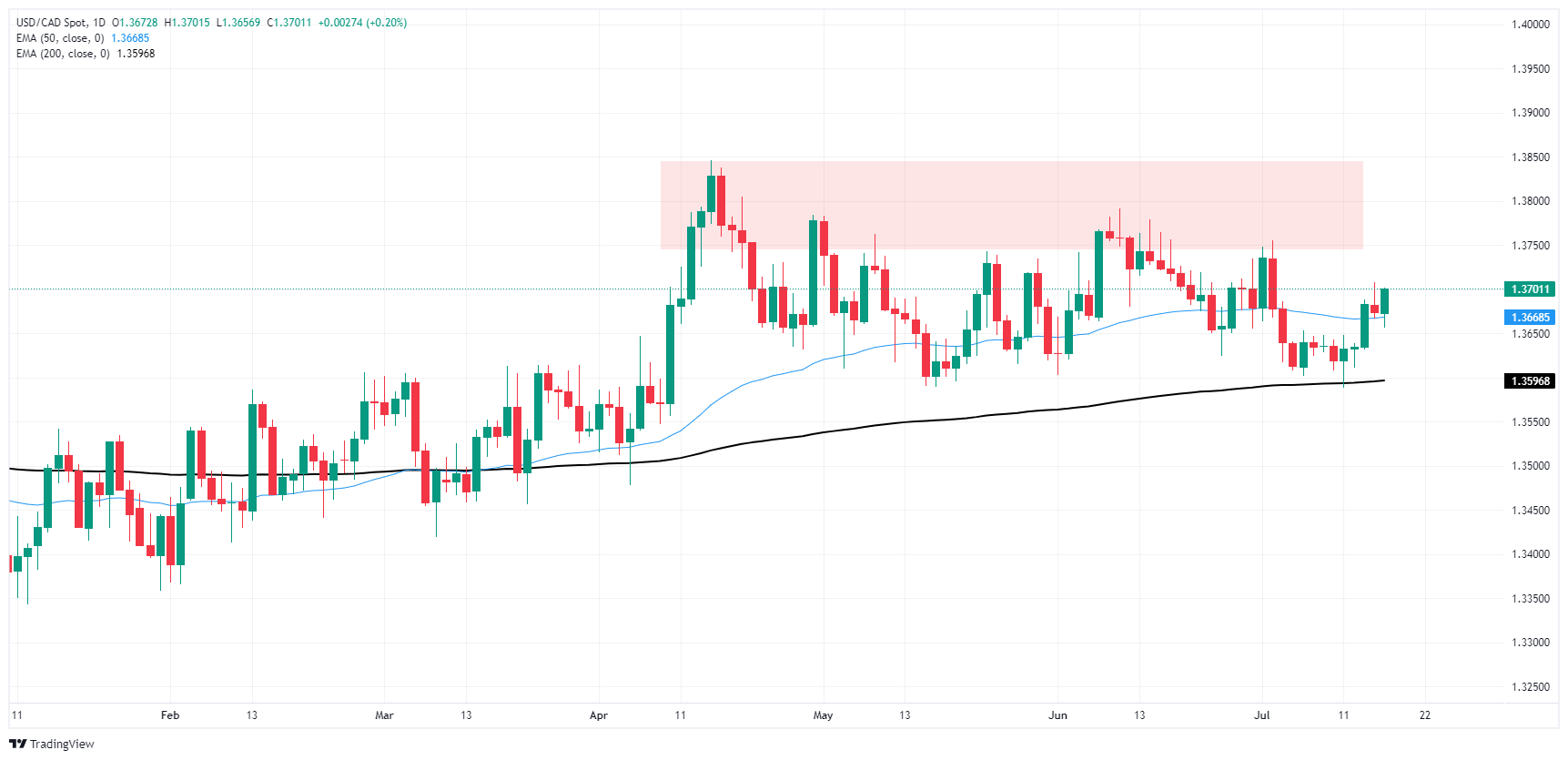- The Canadian dollar fell as investors looked closer at inflation data.
- Canada will receive a fresh interest rate proposal from the BoC next week.
- After a momentary decline in inflation in Canada, the Bank of Canada may have cut interest rates prematurely.
The Canadian dollar (CAD) lost weight on Wednesday as investors took a second look at Canadian Consumer Price Index (CPI) inflation rates released earlier this week. Despite a general decline in core inflation rates thanks to an easing of pressure in overweight inflation measures, core inflation rates remained scorching. The Bank of Canada (BoC) will deliver its latest rate change call next week.
Canada’s central bank is likely to cut interest rates next Wednesday as the BoC seeks to ease price pressures in Canada’s housing investment market. Canada’s housing sector accounts for about 9% of the country’s total economic output, almost twice the OECD average of 4.8%.
Daily Market Factors Review: Canadian Dollar Stumbles as Markets Consider Inflation Chances
- Canada’s key CPI inflation data fell this week, but only across the board, as core inflation indicators continue to suggest a rise in inflation again.
- The headline CPI fell to 2.7% year-over-year in June, down from 2.9% previously, but Canada’s trimmed average CPI held steady at 2.9% year-over-year. The BoC’s own core CPI actually rose to 1.9% year-over-year in June from 1.8%.
- The Bank of Canada rushed to cut interest rates in June after a momentary decline in inflation and announced several more rate cuts in advance, making it harder for the Bank of Canada to maintain a data-driven policy.
- The cost of housing, food, telecommunications and internet access, grocery bills and rent are all on the rise again as industry leaders are no longer making headlines due to earlier price hikes.
- As Derek Holt of Scotiabank Economics noted, “The Bank of Canada is likely to cut interest rates next week, but a decision to do so would signal full confidence in the Bank of Canada’s limited forecasting abilities while also rejecting reliance on data and newer information on the unfolding shock to global supply chains that could be significant for a trade-dependent country like Canada.”
Canadian dollar price today
The table below shows the percentage change in the Canadian Dollar (CAD) against the major currencies traded today. The Canadian Dollar was the strongest against the Australian Dollar.
| USD | EUR | GBP | JPY | BOOR | AUD | NZD | CHF | |
|---|---|---|---|---|---|---|---|---|
| USD | -0.26% | -0.24% | -1.28% | 0.20% | 0.17% | -0.30% | -1.02% | |
| EUR | 0.26% | 0.04% | -1.02% | 0.46% | 0.42% | -0.07% | -0.76% | |
| GBP | 0.24% | -0.04% | -1.06% | 0.43% | 0.39% | -0.11% | -0.79% | |
| JPY | 1.28% | 1.02% | 1.06% | 1.50% | 1.49% | 0.98% | 0.30% | |
| BOOR | -0.20% | -0.46% | -0.43% | -1.50% | -0.04% | -0.52% | -1.21% | |
| AUD | -0.17% | -0.42% | -0.39% | -1.49% | 0.04% | -0.48% | -1.18% | |
| NZD | 0.30% | 0.07% | 0.11% | -0.98% | 0.52% | 0.48% | -0.70% | |
| CHF | 1.02% | 0.76% | 0.79% | -0.30% | 1.21% | 1.18% | 0.70% |
The heat map shows the percentage changes of the major currencies relative to each other. The base currency is selected from the left column, while the quote currency is selected from the top row. For example, if you select the Canadian dollar from the left column and move along the horizontal line to the US dollar, the percentage change displayed in the box will represent CAD (base)/USD (quote).
Technical Analysis: Canadian Dollar Pulls Back, USD/CAD Returns to 1.3700
The Canadian dollar (CAD) lost most of its ground on Wednesday, falling by one-fifth of one percent against the U.S. dollar (USD) and losing four-tenths of one percent against the euro (EUR) and the pound sterling (GBP). Elsewhere, broad recoveries in the Japanese yen (JPY) and the Swiss franc (CHF) meant the CAD was losing ground to the day’s sturdy currencies, falling by -1.55% and 1.25% respectively.
USD/CAD retraced through the 1.3700 level, which strengthened the pair from the intraday low to the 200-hour exponential moving average (EMA) at 1.3656. Short-term momentum tilted to the upside in favor of the greenback versus the Canadian dollar as CAD traders disappeared into the ether.

